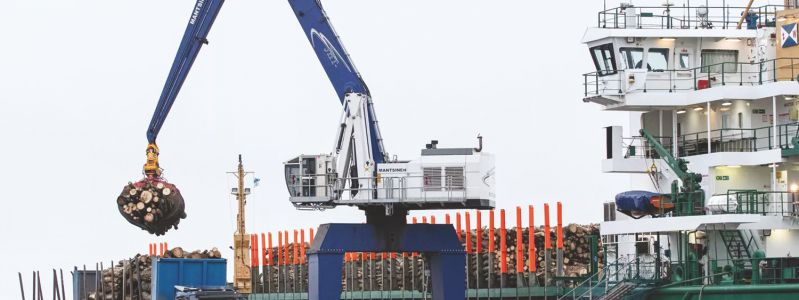Finland-headquartered Metsä Group earmarks significant investments every year in scaling up of its efforts in sustainable supply chains. The Group clearly states its aspiration to only collaborate and partner with those who check all the boxes in the sustainability requirements as it aims for a fully sustainable supply chain in 2030.

The basic definition of supply chain sustainability refers to companies’ efforts to consider the environment as well as the human impact of their product’s journey through the supply chain. This begins with raw materials sourcing to production, storage, and delivery including transportation. As per an article by Metsä Group titled ‘Sustainable supply chain in focus’, the group purchases raw materials, products, equipment, and services from around 15,000 companies on an annual basis.
As the group is thoroughly pledged to implement a fully sustainable supply chain in its operations, there is a Supplier Code of Conduct which is to be abided by Metsä’s suppliers. About the efforts to strengthen sustainability in the supply chain and guiding the suppliers, Ms. Helena Hartiala, VP, Quality and Operational Excellence from Metsä Group Sourcing & Logistics, remarks, “We are committed to operating sustainably and expect the same from our partners. We want to ensure that our suppliers are committed to our Supplier Code of Conduct, and if required, we encourage them to develop their operations in a more sustainable direction.”
Watch: IVAX Paper Chemicals Interview
Assessing Sustainability with a Holistic Perspective
Notably, sustainability should be assessed from an outlook which integrates – the environment, society, and economics in the value chain. In this regard, the forest industry group gives prominent importance to organise proper audits of the suppliers with a comprehensive outlook. “We assess and audit their practices from an environmental, social, and economic perspective. In our assessments, we focus on suppliers that are important to business continuity or who operate in an industry or geographical region which involves potential risks concerning sustainability,” she added.
Also, the Finnish group is continuing its efforts to ensure that it is well-informed on the origin of all the raw materials as well as the packaging material which is used in the supply of Metsä Group’s products. In this undertaking, their suppliers’ assent to comply with the Supplier Code of Conduct is consequential, which is signed at the time of entering into the agreement or renewal of the same. In case a supplier already has a similar code of conduct in place, the Group considers it to be sufficient evidence of the supplier’s commitment to sustainable business.
In a bid to assess the suppliers’ sustainability, Metsä Group makes use of assessment questionnaires and audits. In the audits, the focus is on how suppliers handle environmental matters while ensuring quality and safety at work in their operations. In this process, for instance, the auditors also identify the risks regarding forced labour or labour exploitation.
Also Read: Metsä Group Inked a Maintenance Deal with TiMi Tec
Supporting Suppliers in their Sustainability Journey
After the audits, if there are found to be any areas of improvement in suppliers’ practices, the group puts forth recommendations and then assesses if/not they’ve improved their practices. Also, Metsä sets and defines common sustainability objectives with the selected suppliers. For the assistance of the suppliers, the group has also made available its Compliance and Ethics channel to report ethical concerns.
Furthermore, Metsä Group has shared its strategic 2030 sustainability objectives so as to carve its path to a sustainable climate-neutral future. The article ‘Sustainable supply chain in focus’ is a part of a series of articles, called Choosing Sustainability, which outlines the objectives and describes how the group is actively promoting and putting the stipulations into the way it works.



